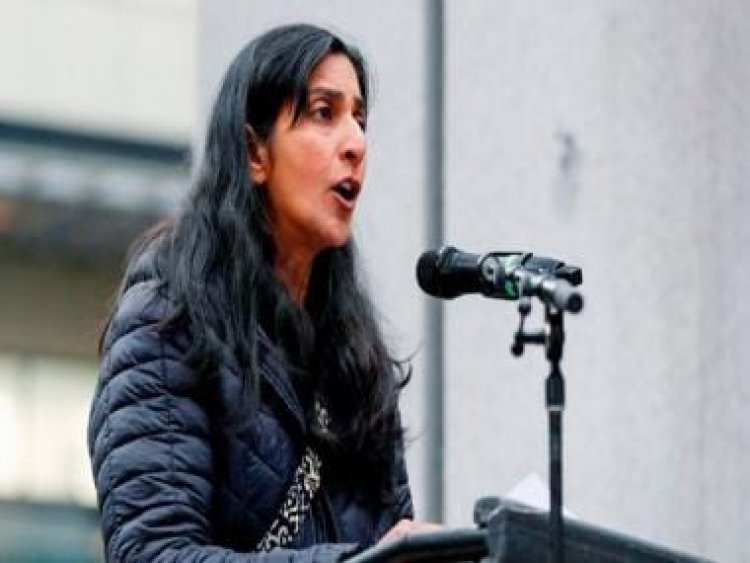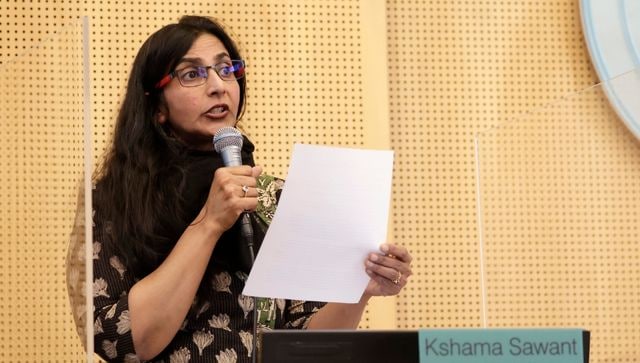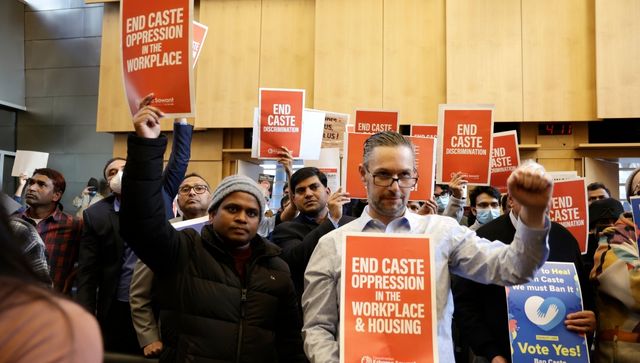Who is Kshama Sawant, the Indian-American behind Seattle’s ban on caste discrimination?
Who is Kshama Sawant, the Indian-American behind Seattle’s ban on caste discrimination?

In a historical step, Seattle has become the first city in the United States to ban caste discrimination.
On Tuesday (21 February), the Seattle City Council voted in a 6-1 majority to add caste to the city’s anti-discrimination laws, reported The Associated Press (AP).
The legislation was introduced by Kshama Sawant, the lone Indian-American member of the city council.
Ahead of the vote, Sawant had said, “This is a truly ground-breaking legislation, it will be a beacon for councils and communities across the country.”
It’s official: our movement has WON a historic, first-in-the-nation ban on caste discrimination in Seattle! Now we need to build a movement to spread this victory around the country ✊ pic.twitter.com/1mBJ1W3v6j
— Kshama Sawant (@cmkshama) February 22, 2023
Who is Kshama Sawant and why has the law irked some of the members of the South Asian community in the US? Let’s take a closer look.
Who is Kshama Sawant?
Born in a middle-class Brahmin family in Pune in 1973, Kshama Sawant grew up in India, mostly Mumbai where she completed her bachelor’s degree in computer science.
Her profile in The Los Angeles Times says that Sawant’s mother was a teacher of history and geography and her father was a civil engineer.
“While growing up in India, Kshama was always conscious of the extreme poverty and inequality surrounding her”, according to her bio on a Seattle government website.
She emigrated to the US to “study economics in order to better understand the root causes of oppression and poverty”, the website adds.
After her arrival in the US, Kshama was “surprised and radicalised by the inequality and poverty that exists here,” says the Seattle City Council website.

Speaking to The Seattle Times in 2013, Sawant said, “Coming from India, what was striking is that you expect that in the wealthiest country in the history of humanity, there shouldn’t be any poverty; there shouldn’t be any homelessness… But when I came here (the US), I found it was exactly the opposite.”
After completing her PhD at North Carolina State University in 2003, she moved to Seattle in 2006 and joined Socialist Alternative.
Sawant also taught at Seattle Central Community College, Seattle University, and the University of Washington Tacoma, says her bio.
In 2012, she ran as a Socialist Alternative candidate for WA State Legislature and bagged 29 per cent of the votes.
The next year, she became the first socialist on the Seattle council by defeating 16-year incumbent Richard Conlin, a Democrat. Since then, she has helped in raising the city’s minimum wage to $15 an hour and increasing the rights of renters, as per The Guardian.
Sawant was one of the main organisers of the Occupy Wall Street Movement in Seattle.
She has also been an activist in the union American Federation of Teachers Local 1789, fighting against budget cuts and tuition hikes.
In 2019, she beat her rival Egan Orion, who was financially backed by Amazon, to get re-elected to the city council. After her victory, Sawant “declared victory from a podium in front of a bright orange banner with the words “TAX Amazon” in giant print”, Jeff Bezos-owned The Washington Post reported then.
ALSO READ: Caste apartheid: India’s other export to the United States
Mixed reactions to the new law
Sawant, who had proposed the ordinance to ban caste discrimination, said at a conference last month, “Caste discrimination doesn’t only take place in other countries. It is faced by South Asian American and other immigrant working people in their workplaces, including in the tech sector in Seattle and in cities around the country”, reported The Wall Street Journal.
Many in the South Asian community have lauded the legislation passed on Tuesday.
AP reported that after the majority of the city council voted in favor of the ordinance, the Seattle City Hall burst into cheers of “Jai Bhim”.

Thenmozhi Soundararajan, founder and executive director of California-based Equality Labs, told AP that Dalit activists from Seattle and outside organised two rallies at the city’s hall to extend support for the ordinance.
“First Seattle, now the nation!” Soundararajan said in a text after the Seattle vote, as per BBC.
Calling it a “historic moment”, Yogesh Mane, a Seattle resident who grew up as an “untouchable” in India, said: “I’m emotional because this is the first time such an ordinance has been passed anywhere in the world outside of South Asia,” AP reported.
However, the law has irked some, who say it singles out the Hindu community which is already susceptible to discrimination in the US.
Suhag Shukla, co-founder and executive director of the Hindu American Foundation, told BBC that caste discrimination is “wrong and violates core Hindu principles”.
But he said the new law sends a message “that our community, which makes up less than 2 per cent of the population, is so uniquely bigoted that we need a special category under the law to police us, reinforcing xenophobic stereotypes we had hoped the US had moved beyond”.
CH Srikrishna, a San Francisco Bay Area-based tech worker, expressed concerns about the consequences of the ordinance for the South Asian community.
“I too want discrimination to end,” he told AP, adding, “but we need to first determine that widespread discrimination exists.”
Srikrishna said the ordinance targets his Hindu religion.
“When you say it originated 2,000 years ago, that is implicitly blaming Hinduism,” he said. “That bothers me. I feel betrayed.”
Seattle council member Sara Nelson who voted against the ordinance called it “a reckless, harmful solution to a problem for which we have no data or research.”
“This could generate more anti-Hindu discrimination and could dissuade employers from hiring South Asians,” she said, as per AP. “The community that is being impacted is deeply divided on this issue.”
Council member Lisa Herbold has disagreed with the Opposition’s view that the law singles out Hindus and people of Indian descent.
“That’s like saying gender discrimination laws single out all men,” she was quoted as saying by AP.
“And just because we have a small population that is experiencing (caste discrimination) that doesn’t make it any less important”, Herbold added.
With inputs from agencies
Read all the Latest News, Trending News, Cricket News, Bollywood News,
India News and Entertainment News here. Follow us on Facebook, Twitter and Instagram.
What's Your Reaction?



























































